Friends, if you’re seeking insight on “Bible Verses About Supporting Female Pastors,” this content is for you. Today, we’ll explore Bible verses that shed light on the role of women in church leadership. These scriptures will help you better understand the biblical perspective on female pastors and ministers. Let’s delve into what the Word says about women serving in pastoral roles and how it relates to modern church practices.
Contents
- 1 What Does the Bible Say About Women in Ministry Leadership?
- 2 Biblical Examples of Women Called to Lead God’s People
- 3 Understanding Galatians 3:28 and Gender Equality in Christ
- 4 How to Interpret 1 Timothy 2:12 in Context of Female Pastors
- 5 Old Testament Women Leaders: Deborah, Miriam, and Huldah
- 6 New Testament Evidence for Women in Church Leadership Roles
- 7 Addressing Common Objections to Female Pastors with Scripture
- 8 Biblical Principles for Supporting Women in Pastoral Ministry
What Does the Bible Say About Women in Ministry Leadership?
When we dive into the Bible to explore what it says about women in ministry leadership, we find a rich tapestry of stories and teachings. Many women are shown as powerful leaders and influencers in the early church. This suggests that God can call anyone, regardless of gender, to serve His purpose. Let’s explore some verses that highlight God’s inclusive call to leadership.
Romans 16:1 – Commendation of Phoebe as a servant leader
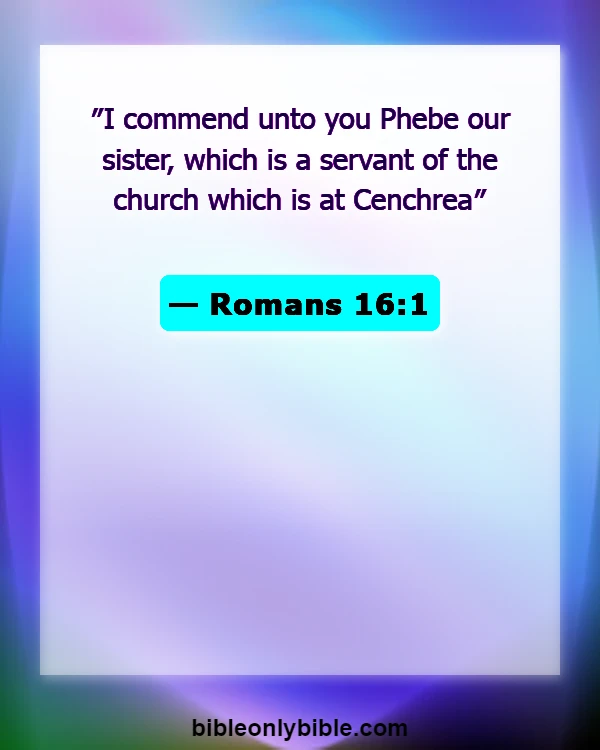
I commend unto you Phebe our sister, which is a servant of the church which is at Cenchrea
Romans 16:1
Explanation:- Romans 16:1 highlights the commendation of Phoebe, a respected servant leader in the early church. Her role as a deacon underscores the biblical support for women in ministry leadership, illustrating how women have historically contributed significantly to the Christian community.
Philippians 4:3 – Women as co-laborers in the Gospel
I intreat thee also, true yokefellow, help those women which laboured with me in the gospel, with Clement also, with other my fellowlabourers, whose names are in the book of life
Philippians 4:3
Explanation:- This verse highlights the role of women as essential co-laborers in spreading the Gospel. It acknowledges the contributions of women in ministry, supporting the idea of their active participation and leadership in church work, thereby affirming their roles in ministry leadership.
Acts 18:26 – Priscilla taught Apollos alongside Aquila, supporting women leaders

He began to speak boldly in the synagogue: whom when Aquila Priscilla had heard, they took him unto them, expounded unto him the way of God more perfectly
Acts 18:26
Explanation:- In this verse, Priscilla, alongside her husband Aquila, instructs Apollos, demonstrating that women held active teaching roles in the early church. This example supports the idea of women participating in ministry leadership, highlighting their valuable contributions to spiritual education and guidance.
Judges 4:4 – Deborah, a prophetess, led Israel as a judge
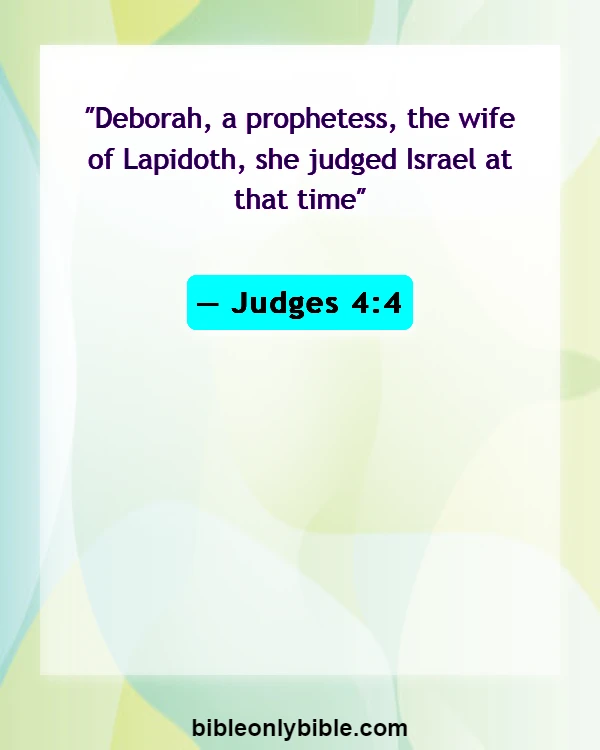
Deborah, a prophetess, the wife of Lapidoth, she judged Israel at that time
Judges 4:4
Explanation:- Deborah, a prophetess and judge, exemplifies female leadership in ministry, demonstrating that women can hold significant roles in spiritual and communal leadership. Her story supports the idea that God empowers women to lead and guide others in faith and justice.
Biblical Examples of Women Called to Lead God’s People
Throughout Scripture, we see stories of women who were called to lead and guide God’s people. These narratives remind us that leadership is not confined by gender. These women demonstrated strength, wisdom, and faithfulness in their roles, reflecting God’s willingness to use anyone who is willing to serve. Let’s look at some examples of such inspiring women in the Bible.
Exodus 15:20 – Miriam leads women in worship with tambourines
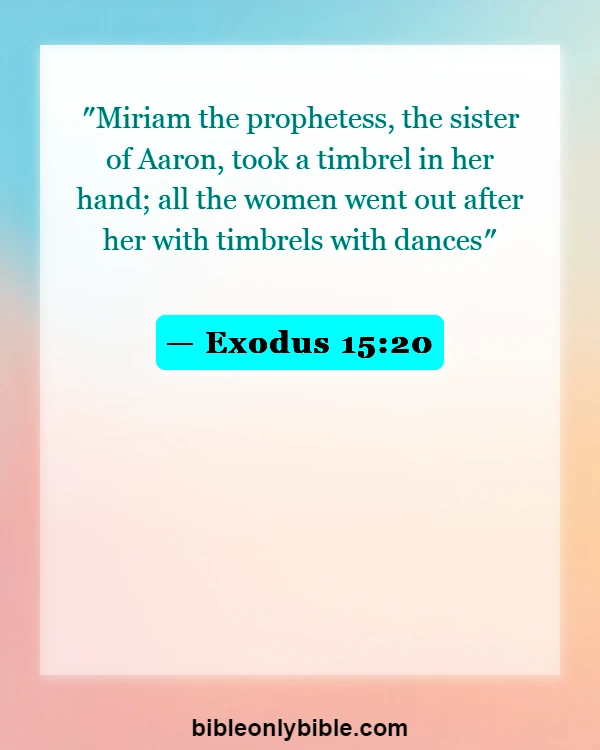
Miriam the prophetess, the sister of Aaron, took a timbrel in her hand; all the women went out after her with timbrels with dances
Exodus 15:20
Explanation:- Miriam, a prophetess and leader, exemplifies the role of women in spiritual leadership. Her leading the women in worship with tambourines highlights the biblical precedent for women guiding and inspiring others in faith, supporting the idea of female pastors today.
2 Kings 22:14 – Huldah, prophetess, consulted for God’s guidance
So Hilkiah the priest, Ahikam, Achbor, Shaphan, Asahiah, went unto Huldah the prophetess, the wife of Shallum the son of Tikvah, the son of Harhas, keeper of the wardrobe; (now she dwelt in Jerusalem in the college;) they communed with her
2 Kings 22:14
Explanation:- Huldah, a prophetess, was sought for divine guidance, highlighting the significant role women played in spiritual leadership. Her consultation by King Josiah’s officials demonstrates that women were respected and trusted as leaders and messengers of God’s will in biblical times.
Acts 16:14 – Lydia, a God-fearing woman, supports Paul’s ministry
A certain woman named Lydia, a seller of purple, of the city of Thyatira, which worshipped God, heard us: whose heart the Lord opened, that she attended unto the things which were spoken of Paul
Acts 16:14
Explanation:- Lydia, a devout believer, plays a significant role in supporting early Christian missions. Her hospitality and faith demonstrate how women were instrumental in spreading the Gospel, highlighting that God calls women to leadership and service in the church.
Romans 16:7 – Junia recognized as outstanding among the apostles
Salute Andronicus Junia, my kinsmen, my fellow-prisoners, who are of note among the apostles, who also were in Christ before me
Romans 16:7
Explanation:- In this verse, Junia is acknowledged as an outstanding apostle, highlighting her significant role and leadership in the early church. This recognition supports the view that women were entrusted with important responsibilities and leadership positions in the early Christian community.
Understanding Galatians 3:28 and Gender Equality in Christ
Galatians 3:28 is a powerful declaration of equality among all believers in Christ. It reminds us that in God’s kingdom, distinctions such as gender, social status, and ethnicity are transcended by our unity in Jesus. This verse is a cornerstone for understanding how we should view each other in the body of Christ, encouraging respect and equality for all.
Galatians 3:28 – Unity and equality in Christ transcends gender
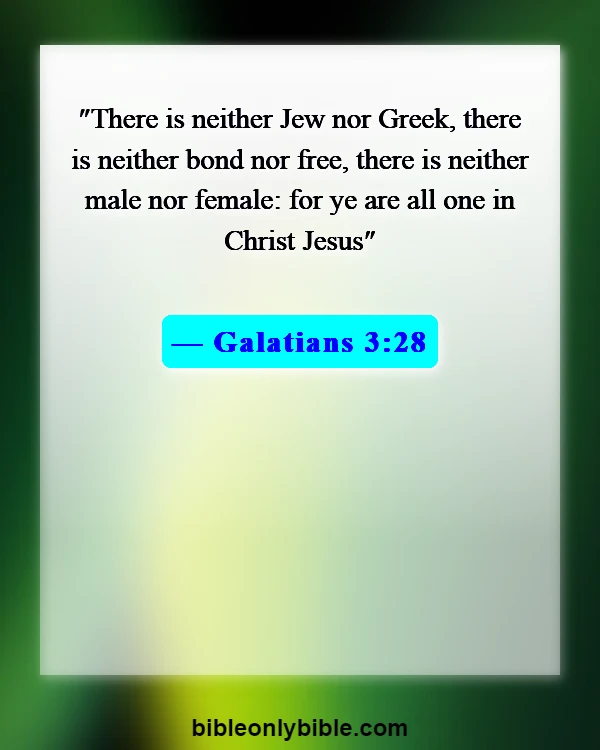
There is neither Jew nor Greek, there is neither bond nor free, there is neither male nor female: for ye are all one in Christ Jesus
Galatians 3:28
Explanation:- This verse highlights the unity and equality of all believers in Christ, regardless of gender. It suggests that in the body of Christ, distinctions like gender do not affect one’s spiritual standing or role, supporting the idea of female pastors within the church.
1 Corinthians 12:13 – Unity in Christ transcends gender and background
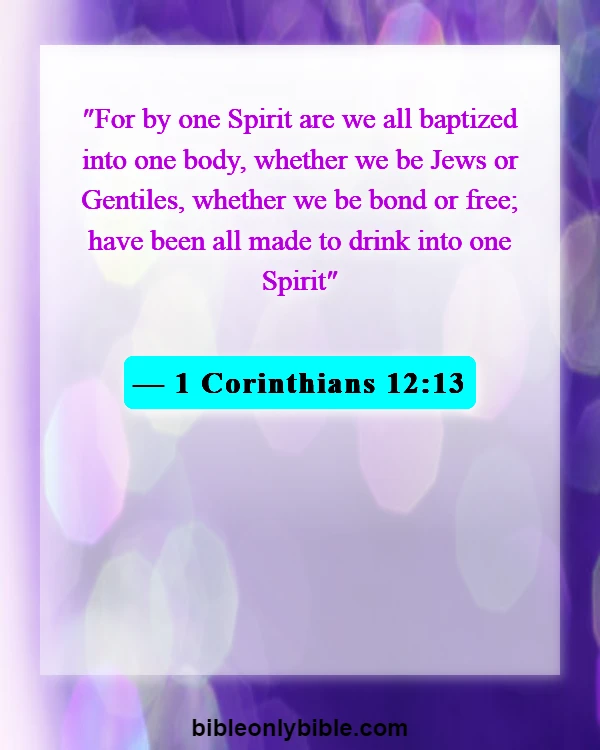
For by one Spirit are we all baptized into one body, whether we be Jews or Gentiles, whether we be bond or free; have been all made to drink into one Spirit
1 Corinthians 12:13
Explanation:- This verse highlights the unity and equality of all believers through the Holy Spirit, regardless of gender, race, or social status. It aligns with Galatians 3:28 by emphasizing that in Christ, traditional barriers dissolve, supporting the idea of gender equality in ministry roles.
Colossians 3:11 – Unity in Christ transcends cultural and gender distinctions
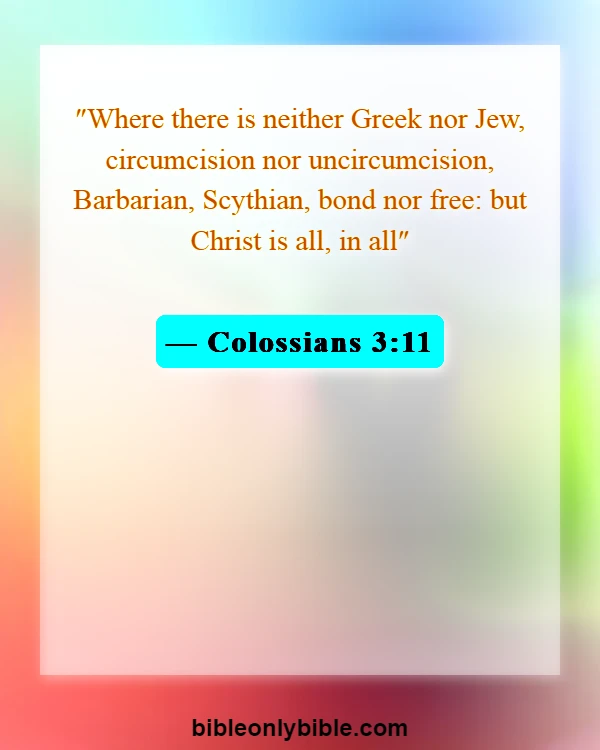
Where there is neither Greek nor Jew, circumcision nor uncircumcision, Barbarian, Scythian, bond nor free: but Christ is all, in all
Colossians 3:11
Explanation:- This verse highlights the unity found in Christ, affirming that cultural, social, and gender distinctions are irrelevant in Him. It supports the idea of gender equality in spiritual leadership, aligning with Galatians 3:28, which emphasizes that all are one in Christ.
How to Interpret 1 Timothy 2:12 in Context of Female Pastors
1 Timothy 2:12 has been a point of discussion when it comes to women in pastoral roles. Understanding the context and cultural background of this passage is crucial. It’s important to approach this text with a heart open to the Spirit’s guidance, seeking to understand how it applies today while considering the broader biblical narrative of leadership and service.
1 Timothy 2:12 – Contextual interpretation of women teaching roles
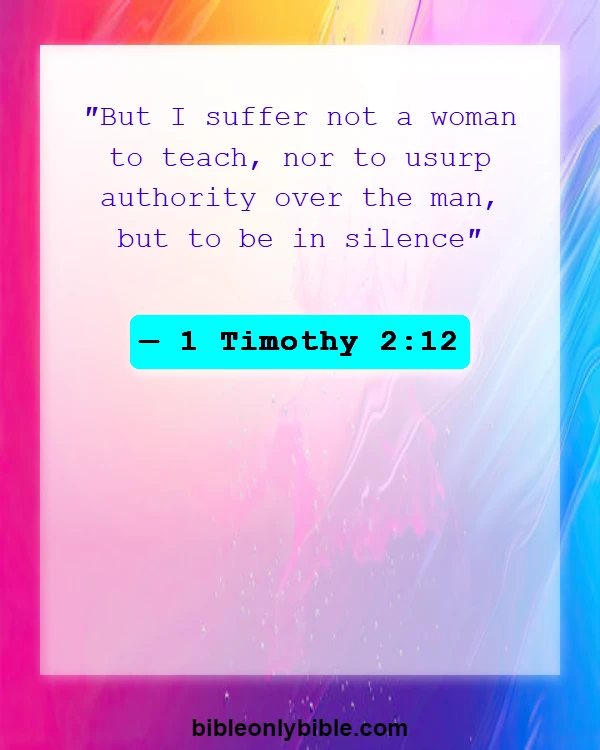
But I suffer not a woman to teach, nor to usurp authority over the man, but to be in silence
1 Timothy 2:12
Explanation:- Understanding this verse requires examining its historical and cultural context. Some scholars suggest it reflects specific issues in the early church, not a universal prohibition. Others highlight the broader biblical narrative, which includes women in leadership, to support female pastors today.
1 Timothy 4:14 – Do not neglect your spiritual gift
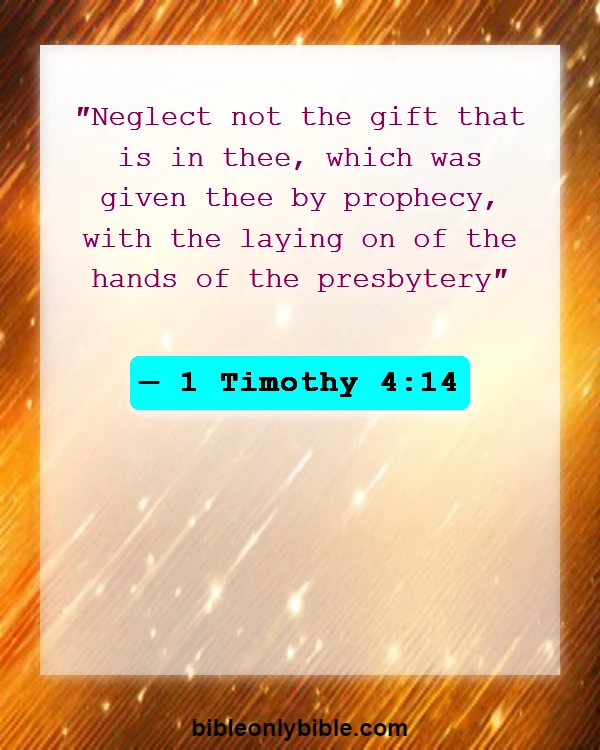
Neglect not the gift that is in thee, which was given thee by prophecy, with the laying on of the hands of the presbytery
1 Timothy 4:14
Explanation:- This verse encourages believers to embrace and utilize their spiritual gifts, emphasizing the importance of recognizing and nurturing God-given talents. In the context of supporting female pastors, it underscores the value of all gifts, regardless of gender, for the edification of the church.
Old Testament Women Leaders: Deborah, Miriam, and Huldah
The Old Testament provides us with remarkable stories of women like Deborah, Miriam, and Huldah who were called to lead. These women stepped into roles of authority and influence during pivotal moments in Israel’s history. Their examples demonstrate that God has always equipped women to lead and deliver His messages with power and grace.
New Testament Evidence for Women in Church Leadership Roles
The New Testament offers a glimpse into the early church where women played significant roles in leadership and ministry. From hosting church gatherings to teaching and prophesying, women were active participants in the spread of the Gospel. These accounts encourage us to recognize and support the diverse gifts that women bring to the church today.
Addressing Common Objections to Female Pastors with Scripture
Addressing objections to female pastors often involves revisiting scriptural interpretations with an open heart. It’s important to explore the full narrative of the Bible, seeing how God has empowered women throughout history. By understanding the cultural contexts and the broader message of the Gospel, we can work towards a more inclusive approach to ministry.
1 Corinthians 11:5 – Women praying, prophesying with head covered
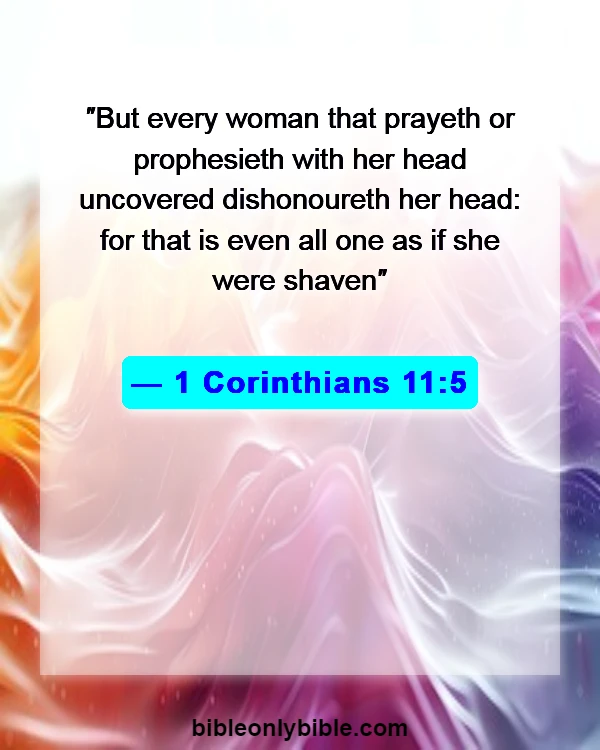
But every woman that prayeth or prophesieth with her head uncovered dishonoureth her head: for that is even all one as if she were shaven
1 Corinthians 11:5
Explanation:- This verse highlights that women were actively participating in worship by praying and prophesying, which suggests early Christian communities accepted women’s spiritual contributions. Addressing objections to female pastors, it underscores women’s significant roles in church activities, advocating for their leadership today.
Acts 21:9 – Philip’s daughters prophesied
The same man had four daughters, virgins, which did prophesy
Acts 21:9
Explanation:- Philip’s daughters are noted for their gift of prophecy, highlighting women’s active roles in early Christian communities. This supports the inclusion of women in spiritual leadership, challenging objections to female pastors by demonstrating their participation in God’s work and ministry.
Biblical Principles for Supporting Women in Pastoral Ministry
Supporting women in pastoral ministry is about embracing the biblical principles of love, unity, and equality. Encouraging one another in our God-given callings is essential for the health of the church. By recognizing and affirming the diverse ways God calls individuals to serve, we can build a community that reflects His love and grace to the world.
